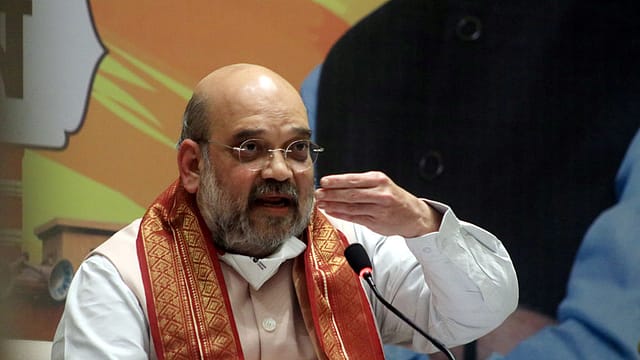Amit Shah unveils National Cooperative Policy 2025
ADVERTISEMENT

Union Home Minister and Minister of Cooperation Amit Shah on Friday unveiled the National Cooperation Policy – 2025 in New Delhi.
The policy aims to triple the contribution of the cooperative sector to the country’s GDP by the year 2034. Shah acknowledged that this is a significant goal, but added that comprehensive preparations have been made to achieve it. A major objective is to bring 50 crore citizens, who are either not members or are inactive in the cooperative sector, into active participation, said Shah. Additionally, there is a target to increase the number of cooperative societies by 30%. Currently, there are 8.3 lakh societies, and this number will be increased by 30%.
While addressing the unveiling ceremony of the National Cooperation Policy – 2025, Shah said a 40-member committee, led by former Union minister Suresh Prabhu, presented a comprehensive and visionary cooperation policy to the country's cooperative sector after holding dialogue with various stakeholders.
The Minister of Cooperation said that for a better future of cooperation, a 40-member committee was formed, which conducted regional workshops and held extensive discussions with cooperative leaders, experts, academicians, ministries, and all other stakeholders to draft the policy. The committee received about 750 suggestions, held 17 meetings, and after consultations with RBI and NABARD, finalised the policy.
Shah called the new Cooperation Policy a historic step toward fulfilling Prime Minister Narendra Modi’s vision of ‘Sahkar Se Samriddhi’ (Prosperity through Cooperation). He said that the Modi government has set a goal for India to emerge as the world’s third-largest economy by 2027. Along with that, India also holds the responsibility for the inclusive development of its 1.4 billion citizens. He said that India’s core idea is to create a model in which there is a collective development for all, equitable growth for everyone, and national progress through the contributions from everybody.
Shah said that in the past four years, the cooperative sector has stood on equal footing with the corporate sector by every measure. He added that before 2020, some people had declared the cooperative sector to be defunct, but now, they also acknowledge its importance and future.
The Union Home Minister said that while it is very important for India to become the world’s third-largest economy, equal attention must be given to the development of its 1.4 billion people. He emphasised that only the cooperative sector has the capacity to develop the nation's economy inclusively with contributions from all 1.4 billion citizens. He said that the cooperative sector has a unique capability to pool small amounts of capital from many individuals to create large-scale enterprises. He stated that while formulating the Cooperation Policy, it was ensured that its core focus remained on the development of 1.4 billion people of India—especially villages, agriculture, rural women, Dalits, and tribals.
He said that the vision of the new cooperation policy is to build a Viksit Bharat by 2047 through ‘Sahkar Se Samriddhi’. He explained that the mission of the policy is to promote small cooperative units that are professional, transparent, technology-enabled, accountable, economically self-reliant, and successful—and to ensure at least one cooperative unit is established in every village.
Shah further said that six pillars have been defined to achieve the set goals for the cooperative sector. These are: Strengthening the foundation, Promoting vibrancy, Preparing cooperative societies for the future, Enhancing inclusivity and expanding reach, Expanding into new sectors, and preparing the younger generation for cooperative development.
The Ministry of Cooperation has prepared a detailed plan for sectors like tourism, taxi services, insurance, and green energy. He specifically mentioned that a remarkable start will be made in the taxi and insurance sectors in a very short time. He explained that the participation of cooperative units in these emerging sectors means that successful cooperatives will come together to form new cooperative entities, which will begin operations in these new areas. The profits generated through these units will ultimately reach the members of Primary Agricultural Credit Societies (PACS) at the rural level. He emphasised that the goal is to build a large and robust cooperative ecosystem.
There will be at least one primary cooperative unit in every panchayat, which could be a Primary Agricultural Credit Society (PACS), Primary Dairy Cooperative, Primary Fisheries Cooperative, Primary Multipurpose PACS, or any other primary unit. These units will also help create more employment opportunities for youth. Shah emphasised that in order to enhance transparency, financial stability, and institutional trust, each unit must be empowered. For this, a cluster and monitoring system will also be developed.